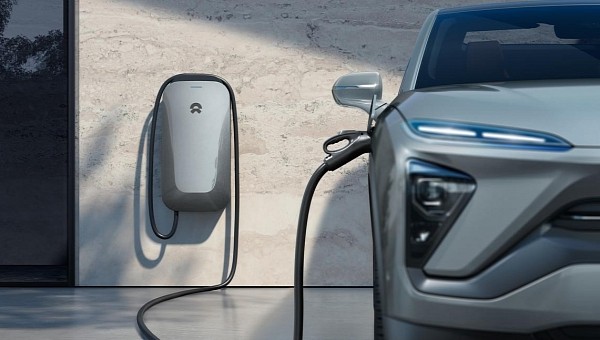NIO is one of the most interesting EV startups from China, and many compare it to Tesla in terms of innovation and image. Nevertheless, NIO struggled to ramp up production, and having many models in the lineup made it vulnerable to supply-chain disruptions.
Every startup has its own growth strategy, and we’ve seen a lot of diversity in the automotive landscape. Tesla launched one model at a time and only started expanding its production capacity when demand exceeded capacity. Despite its more careful approach, Tesla was more than once close to collapsing. Rivian, on the other hand, started with two models outright and is already building its second production facility.
NIO in China had an equally bold approach with an impressive lineup, which made it difficult to ramp up production. NIO builds no less than seven electric vehicles, and at the same time, it expanded in Europe with electric cars and battery swap stations. It’s an impressive endeavor, but not without risks, as NIO found out after struggling in the past year.
NIO’s CEO, William Li, explained in a meeting with investors that strategic choices made NIO more vulnerable than other car startups. But in the long run, these choices could put NIO in a better position as problems are ironed out and supply chain constraints ease.
Li offered the ET7 subframe as an example. Designed to very stringent standards, the subframe assembly had a low yield rate, as suppliers struggled to produce them fast enough to specifications. This made ramping up production more difficult.
The same happened with NIO’s first product, the ES8, because its all-aluminum body was complicated to put together. NIO eventually overcame the issues, and it expects the subframe yields situation to also improve, with the worst already behind. China’s “Zero Covid” policy also impacted the supply chain, as forced quarantines throughout China hampered industrial production.
Unlike other car startups, which prioritize production for the most popular configurations to meet production targets, NIO usually builds to order. This means production can be overwhelmed by many models and configurations, with the production lines and workers juggling tasks to fulfill very diverse orders.
“This is in conflict with today’s very complex supply chain situation,” explained Li, according to CnEVPost. “Is this positioning wrong? I don’t think it’s wrong, but it’s definitely a little more difficult to face at this point in time.”
NIO delivered 10,059 EVs in October, down 7.5 percent from September, far from the record high that Li had previously expected. According to a Bloomberg report, NIO lost 7,000-vehicle production in October because of Covid-related disruptions.
NIO in China had an equally bold approach with an impressive lineup, which made it difficult to ramp up production. NIO builds no less than seven electric vehicles, and at the same time, it expanded in Europe with electric cars and battery swap stations. It’s an impressive endeavor, but not without risks, as NIO found out after struggling in the past year.
NIO’s CEO, William Li, explained in a meeting with investors that strategic choices made NIO more vulnerable than other car startups. But in the long run, these choices could put NIO in a better position as problems are ironed out and supply chain constraints ease.
Li offered the ET7 subframe as an example. Designed to very stringent standards, the subframe assembly had a low yield rate, as suppliers struggled to produce them fast enough to specifications. This made ramping up production more difficult.
The same happened with NIO’s first product, the ES8, because its all-aluminum body was complicated to put together. NIO eventually overcame the issues, and it expects the subframe yields situation to also improve, with the worst already behind. China’s “Zero Covid” policy also impacted the supply chain, as forced quarantines throughout China hampered industrial production.
Unlike other car startups, which prioritize production for the most popular configurations to meet production targets, NIO usually builds to order. This means production can be overwhelmed by many models and configurations, with the production lines and workers juggling tasks to fulfill very diverse orders.
“This is in conflict with today’s very complex supply chain situation,” explained Li, according to CnEVPost. “Is this positioning wrong? I don’t think it’s wrong, but it’s definitely a little more difficult to face at this point in time.”
NIO delivered 10,059 EVs in October, down 7.5 percent from September, far from the record high that Li had previously expected. According to a Bloomberg report, NIO lost 7,000-vehicle production in October because of Covid-related disruptions.






